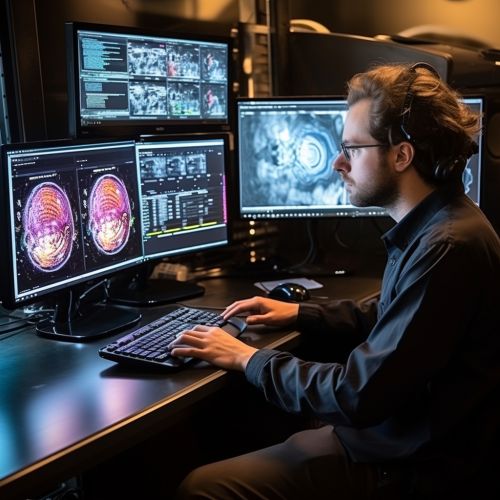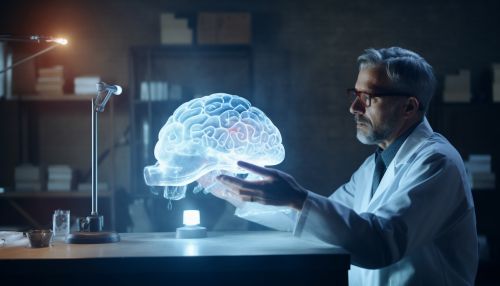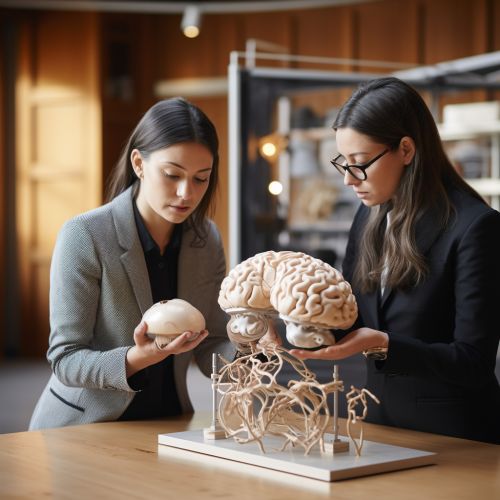Cognitive Neuroscience of Cognitive and Social Neuroscience
Introduction
Cognitive neuroscience is a branch of neuroscience that studies the biological processes that underlie cognition, especially those involving the brain. This field of study focuses on how the brain and the rest of the nervous system influence cognition, behavior, and learning. Cognitive neuroscience is a multidisciplinary field, incorporating principles and theories from fields such as psychology, computer science, linguistics, and neuroscience.


Cognitive Neuroscience
Cognitive neuroscience is primarily concerned with the study of cognition, which refers to the mental processes that include perception, memory, problem-solving, and language. These processes are studied in relation to the brain and its functions. Cognitive neuroscience uses a variety of methods to study these processes, including neuroimaging techniques such as functional magnetic resonance imaging (fMRI) and positron emission tomography (PET), as well as cognitive testing and behavioral studies.
Cognitive Processes
Cognitive processes are the mental activities that we use to process information, make decisions, and interact with our environment. These processes include perception, attention, memory, language, and executive functions. Cognitive neuroscience seeks to understand how these processes are influenced by the brain and the nervous system.
Perception
Perception is the process by which we interpret sensory information to understand our environment. Cognitive neuroscientists study how the brain processes sensory information from our five senses (sight, hearing, touch, taste, and smell) to create our perception of the world around us. They also investigate how perception is influenced by other cognitive processes, such as attention and memory.
Attention
Attention is the cognitive process that allows us to focus on specific stimuli while ignoring others. Cognitive neuroscientists study how the brain allocates resources to process relevant stimuli and ignore irrelevant ones. They also investigate how attention is influenced by other cognitive processes, such as memory and perception.
Memory
Memory is the cognitive process that allows us to store, retain, and retrieve information. Cognitive neuroscientists study how the brain encodes, stores, and retrieves memories. They also investigate how memory is influenced by other cognitive processes, such as attention and perception.
Language
Language is the cognitive process that allows us to communicate with others. Cognitive neuroscientists study how the brain processes language, including how we understand and produce spoken and written language. They also investigate how language is influenced by other cognitive processes, such as memory and attention.
Executive Functions
Executive functions are the cognitive processes that allow us to plan, organize, and regulate our behavior. Cognitive neuroscientists study how the brain controls these functions, including how we make decisions, solve problems, and control our impulses. They also investigate how executive functions are influenced by other cognitive processes, such as attention and memory.
Social Neuroscience
Social neuroscience is a subfield of cognitive neuroscience that focuses on how the brain and the nervous system influence social behavior. This field of study investigates how neural, hormonal, cellular, and genetic mechanisms, as well as evolutionary processes, influence social behaviors. Social neuroscience uses a variety of methods to study these processes, including neuroimaging techniques, behavioral studies, and cognitive testing.


Social Cognition
Social cognition is the study of how people process, store, and apply information about other people and social situations. It focuses on the role that cognitive processes play in our social interactions. Social neuroscientists study how the brain processes social information, including how we recognize and interpret the emotions and intentions of others.
Theory of Mind
Theory of mind is the ability to attribute mental states—beliefs, intents, desires, emotions, knowledge, etc.—to oneself and others and to understand that others have beliefs, desires, intentions, and perspectives that are different from one's own. Social neuroscientists study how the brain supports this ability, including how we understand and predict the behavior of others.
Empathy
Empathy is the ability to understand and share the feelings of others. Social neuroscientists study how the brain supports this ability, including how we recognize and respond to the emotions of others.
Social Decision-Making
Social decision-making is the process of making decisions in social contexts. Social neuroscientists study how the brain supports this process, including how we evaluate and choose between different social options.
Intersection of Cognitive and Social Neuroscience
The intersection of cognitive and social neuroscience is a burgeoning field of study that seeks to understand how cognitive and social processes interact to influence behavior. This field of study investigates how cognitive processes, such as attention and memory, influence social behavior, and how social processes, such as social decision-making and empathy, influence cognitive behavior.


Social Influence on Cognitive Processes
Social neuroscience has shown that social factors can influence cognitive processes. For example, social context can influence attention, with people paying more attention to socially relevant information. Similarly, memory can be influenced by social factors, with people more likely to remember information that is socially relevant.
Cognitive Influence on Social Processes
Cognitive neuroscience has shown that cognitive processes can influence social behavior. For example, attention can influence social decision-making, with people more likely to choose options that they have paid more attention to. Similarly, memory can influence social behavior, with people more likely to behave in ways that are consistent with their memories.
